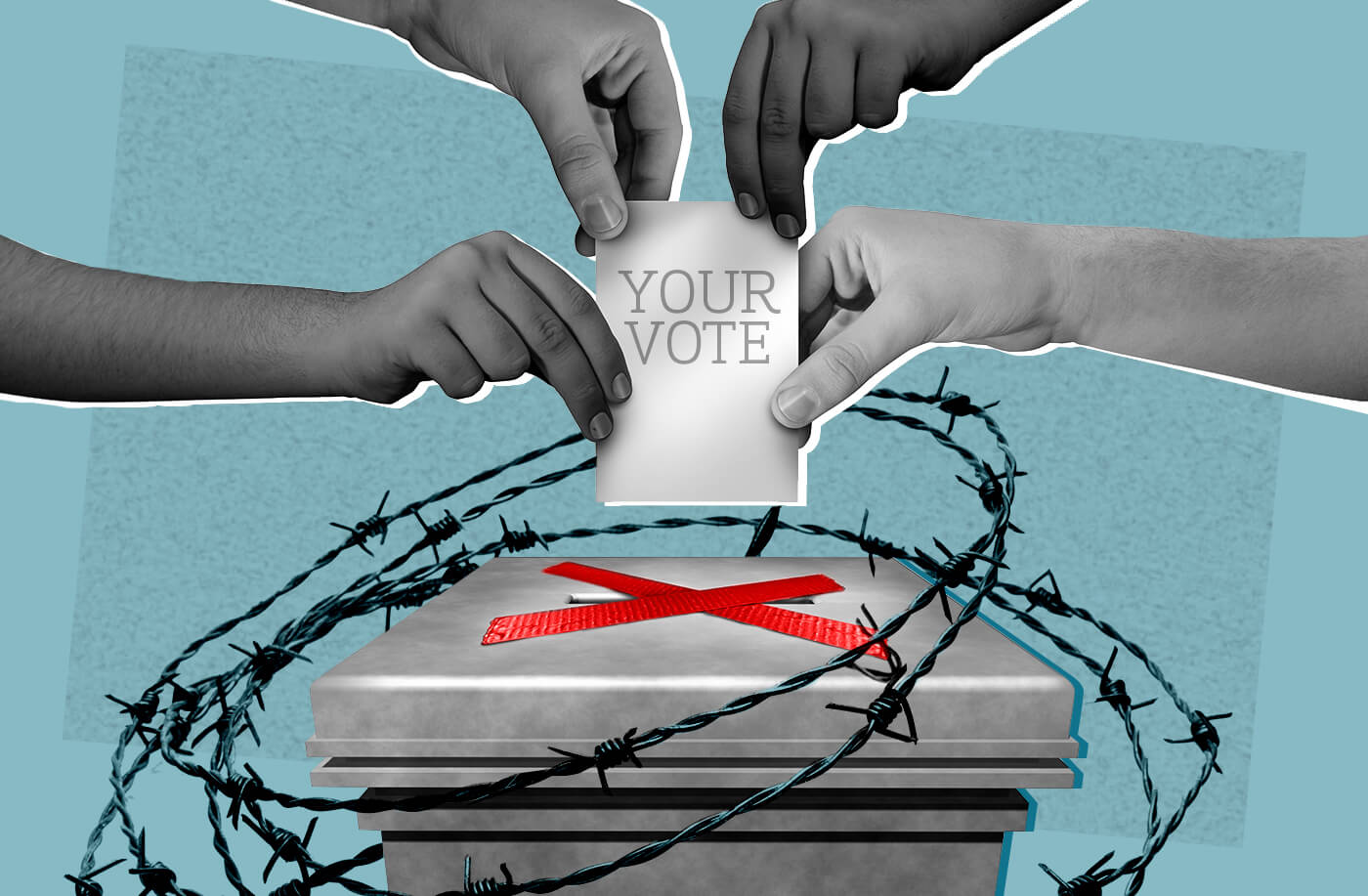
#image_title
#image_title
A year before the 2022 election, a review of Republican proposals that Wisconsin Gov. Tony Evers has vetoed during his first term.
One year from now, Wisconsin voters will have chosen to either re-elect Democratic Gov. Tony Evers or elect his Republican opponent, currently expected to be former Lt. Gov. Rebecca Kleefisch.
As legislative Republicans move forward with their proposed gerrymandered maps, entrenching their advantage in the Assembly and Senate, the governor’s race will mean the difference between having a balance of power between the parties in a decidedly purple state and allowing Republicans to run the state unchecked.
As the Democratic governor to a Republican-led statehouse, one of Evers’ powers has been the veto pen, blocking legislation that would have exacerbated the impacts of the COVID-19 pandemic—especially on the un- or under-employed—made voting more difficult, and restricted abortion rights.
But with control of all three branches of state government in Wisconsin, what would be Wisconsin Republicans’ priorities? And what would they push through if unhindered?
While Kleefisch has not provided a plan for how to guide the state through the ongoing pandemic and doesn’t even mention COVID-19 on her campaign website or her priorities for the state under the 1848 Project, she spoke before an anti-vaccine organization before coming down with COVID-19 herself, and has said that she does not support vaccine or masking requirements, despite their effectiveness with reducing the spread of COVID-19.
The priorities she does list include funding charter schools, pushing back against police reform, and so-called election security, a phrase legislative Republicans have used to justify legislation that would make it harder for lawful voters to access the ballot box. Kleefisch has also said she would sign a Texas-style “heartbeat” abortion restriction and declined to say whether she would sign a bill allowing the Legislature to overturn elections.
RELATED: Proposed GOP Maps Would End Evers’ Ability to Veto Any of Their Bills
During debate over a bill that would have barred transgender children from participating in extracurricular sports, Sen. Kelda Roys (D-Madison) pointed out that Evers’ veto freed Republican lawmakers from the potential consequences of their legislation.
“It comes at no cost to them because they know it’s not going to become law. They know we’re not going to face the kinds of protests and economic loss that other states that have pushed anti-trans legislation [have faced],” Roys said. “They’re protected by [Evers’] veto. And that, in a way, frees them to just play to their base.”
Republican Priorities
The first legislation out of the gate in the 2021-22 legislative session was the COVID-19 package put forward during the winter 2020 special session. After 300 days of inaction in the Statehouse chambers and a litany of lawsuits against public health measures, Assembly Republicans unveiled a COVID-19 relief package that was short on relief and loaded with mandates, punitive measures, and requirements that public workers return to offices despite the obvious dangers.Senate Republicans reached a compromise with Evers, but it was shot down by Assembly Republicans. Even after weeks of negotiations, and a veto, Evers said the bills that were finally passed fell well short of expectations and the need across the state.
Legislators then introduced some of the toxic provisions from the first bill—such as micromanaging federal COVID-19 relief funds, banning private workplaces from setting vaccine requirements (against the protests of healthcare facilities), banning public health officials from setting safety requirements at houses of worship, and requiring public employees to stop working from home—as separate bills that Evers then vetoed.
The next big priority for statehouse Republicans was so-called election reform. Based on the “Big Lie” that former President Donald Trump actually won the 2020 election, legislative Republicans followed suit with their counterparts around the country and rolled out several bills that would limit ballot access or result in more ballots being disqualified.

Several of them would have set limits on absentee ballots: how people could receive them, how they could return them (particularly limiting municipalities to one ballot drop box), and prohibiting clerks from making corrections on addresses so ballots wouldn’t be thrown out. Disability advocates in particular argued the bills would limit their community from exercising their right to vote.
Evers stated publicly that he would veto any bill that restricts voter access, but Republican lawmakers still passed several restrictive bills. Evers followed through and vetoed them.
Another bill that has been struck out by Evers’ pen would have cut state funding for municipalities that reduced their policing budgets. Republicans put forward the bill in response to calls to defund the police, though Republicans effectively set up communities to reduce police budgets when they implemented the stagnant state funding and property tax limits that squeeze municipalities and force them to cut spending.
“It really is disingenuous to bring forward a bill that is aimed at this very political conversation about defunding the police when the reality is the vast majority of municipalities are trying to just fund the basic level of services, including the police, and are relying on limited state funding to be able to do that,” Minority Caucus Chair Mark Spreitzer (D-Beloit) said on the Assembly floor. “If Republican legislators had talked to the municipalities that they represent, they would have known that this was the case.”
Legislative Republicans have introduced bills to limit abortion access as well. They have not made their way to Evers’ desk, but are moving along through the legislative chambers. Four of them are almost exact copies of four bills that Evers vetoed in 2019.
Politics

‘Radical’ Republican proposals threaten bipartisan farm bill, USDA Secretary says
In an appearance before the North American Agricultural Journalists last week, United States Department of Agriculture (USDA) Secretary Tom Vilsack...

New Biden rule protects privacy of women seeking abortions
Under the new rules, state officials and law enforcement cannot obtain medical records related to lawful reproductive health care with the goal of...
Local News

Readers Poll: Top Bowling Alleys in Wisconsin
Looking for the best bowling in Wisconsin? Look no further! Our readers have spoken in our recent poll, and we have the inside scoop on the top...

8 Wisconsin restaurants Top Chef judges are raving about
Top Chef’s 21st season is all about Wisconsin, and on-screen, it’s already apparent that the judges feel right at home here. But, while filming in...


